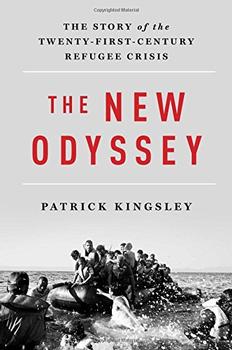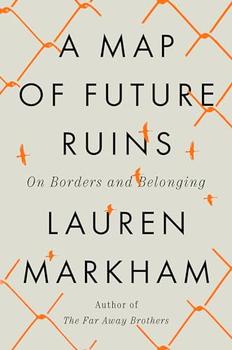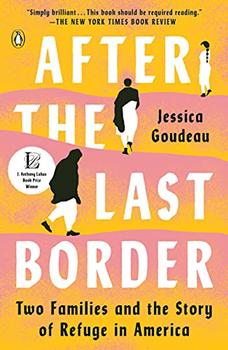Summary | Excerpt | Reviews | Beyond the book | Read-Alikes | Genres & Themes | Author Bio

The Story of the Twenty-First Century Refugee Crisis
by Patrick KingsleyIn the humane tradition of Katherine Boo's Behind the Beautiful Forevers comes a searing account of the international refugee crisis.
On the day of his son's fourteenth birthday, Hashem al-Souki lay somewhere in the Mediterranean, crammed in a wooden dinghy. His family was relatively safe - at least for the time being - in Egypt, where they had only just settled after fleeing their war-torn Damascus home three years prior. Traversing these unforgiving waters and the treacherous terrain that would follow was worth the slim chance of securing a safe home for his children in Sweden. If he failed, at least he would fail alone.
Hashem's story is tragically common, as desperate victims continue to embark on deadly journeys in search of freedom. Tracking the harrowing experiences of these brave refugees, The New Odyssey finally illuminates the shadowy networks that have facilitated the largest forced exodus since the end of World War II.
The Guardian's first-ever migration correspondent, Patrick Kingsley has traveled through seventeen countries to put an indelible face on this overwhelming disaster. Embedding himself alongside the refugees, Kingsley reenacts their flight with hundreds of people across the choppy Mediterranean in the hopes of better understanding who helps or hinders their path to salvation. From the starving migrants who push through sandstorms with children strapped to their backs to the exploitive criminals who prey on them, from the smugglers who dangerously stretch the limits of their cargo space to the volunteers who uproot their own lives to hand out water bottles, what emerges is a kaleidoscope of humanity in the wake of tragedy. By simultaneously tracing the narrative of Hashem, who endured the trek not once but twice, Kingsley memorably creates a compassionate, visceral portrait of the mass migration in both its epic scope and its heartbreaking specificity.
Exposing the realities of this modern-day odyssey as well as the moral shortcomings evident in our own indifference, the result is a crucial call to arms and an unprecedented exploration of a world we too often choose not to know.
Patrick Kingsley, author of The New Odyssey, tells a hell of a story. And in some ways, it's become the story of our times. There's no way Kingsley could have foreseen the election of Donald Trump as U.S. president when he began to report first-hand the plight of refugees from Syria, Egypt, sub-Saharan Africa and throughout Europe, several years ago. But Trump's headline-making "Executive Order" restricting access to the United States for refugees from certain designated countries has given added prominence to a humanitarian crisis that is engendering wildly different responses from citizens and political leaders around the globe...continued
Full Review
 (1127 words)
(1127 words)
(Reviewed by James Broderick).
The New Odyssey brings to mind the original epic with which this book has many parallels. Literary works don't come much more venerable or influential than The Odyssey, a 12,000-line poem written in ancient Greek and composed sometime in the eighth century B.C.E. Granted, it's likely not every contemporary reader's favorite work (although you probably would have felt differently 2,000 years ago, when it was the poem to know). And for those countless generations of students who were forced to read The Odyssey, perhaps the work seemed more like an epic pain than an epic poem, but at least you had the "epic" part right. In fact, it's widely considered the most "epic" work in all of Western literature—perhaps ironic since it's not known ...

If you liked The New Odyssey, try these:

by Lauren Markham
Published 2024
A mesmerizing, trailblazing synthesis of reporting, history, memoir, and essay.

by Jessica Goudeau
Published 2021
The story of two refugee families and their hope and resilience as they fight to survive and belong in America.
The low brow and the high brow
Click Here to find out who said this, as well as discovering other famous literary quotes!